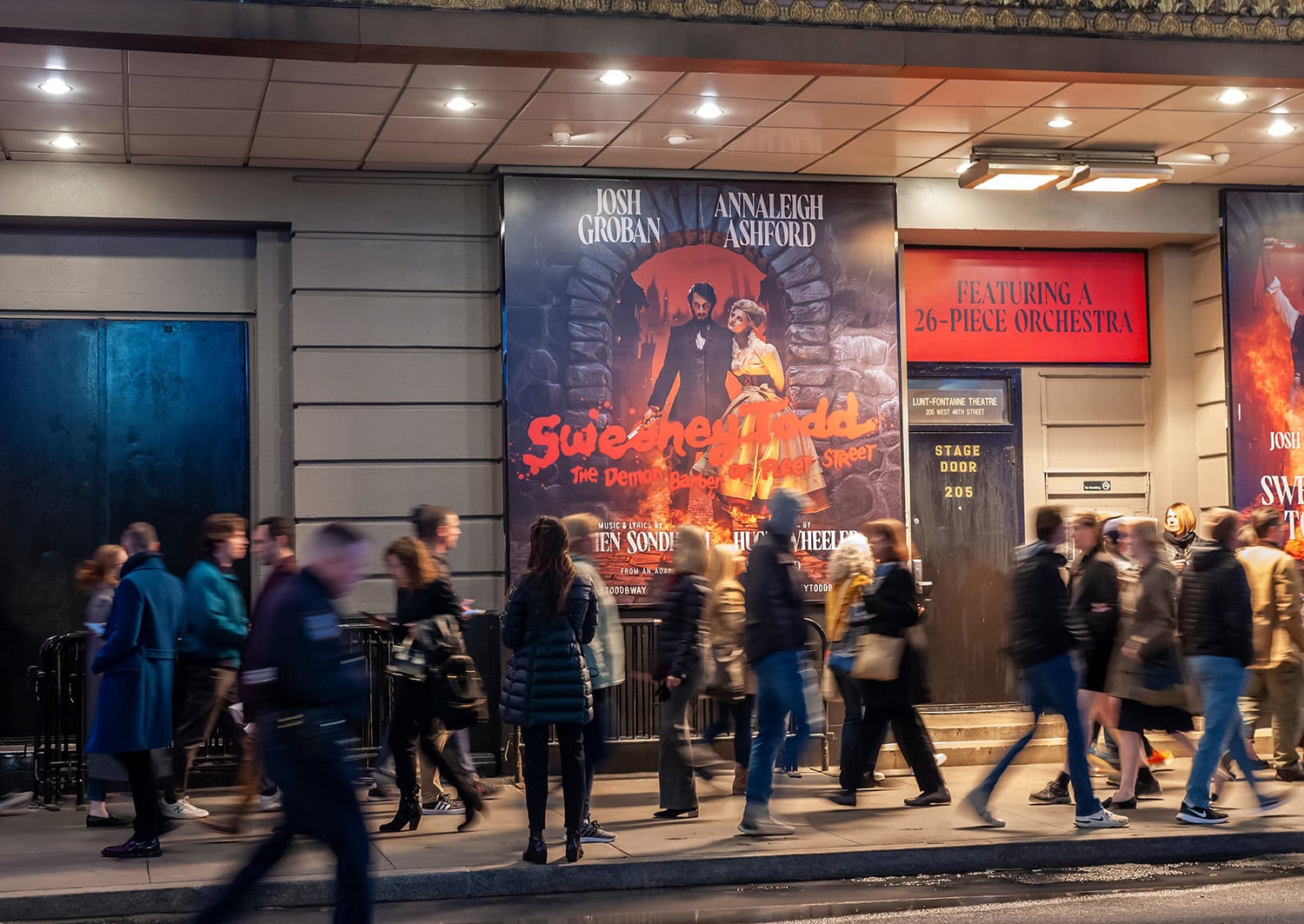December is filled with joy and merriment. So it might strike some as odd, but I recently realized that the musical “Sweeney Todd” is an excellent prelude to the Advent season. Hear me out.
The Church exhorts us to take the opportunity in Advent to examine our lives. In fact, it is tradition for the Church to preach on death, judgment, heaven and hell (the four last things) during this liturgical season. As the musical’s dynamic opening number exhorts, “attend the tale of Sweeney Todd” and discover how it serves as a guide for this Advent season.
Return to the Lord this Advent
“All of us have become like unclean people” (Is 64:4).
If you’ve never seen a rendition of “Sweeney Todd,” you may be surprised to discover that the first crime revealed in the play is not by Fleet Street’s demon barber. In fact, the musical begins by telling a different story. A corrupt judge in London named Turpin lusts after Sweeney Todd’s wife and lures her into his house where she is horribly abused. To add sorrow upon sorrow, the judge also kidnaps Sweeney’s baby daughter and sends Sweeney as a criminal to Australia on false charges.
Somewhat understandably, rage and revenge consume Sweeney. He returns to London where he finds an accomplice in the pie shop owner Mrs. Lovett. While Sweeney plots the judge’s murder and runs his barber/butcher shop above her bakehouse, Mrs. Lovett hides his crimes by baking the murdered victims into pies. By the second act, customers from all over London practically scramble to purchase her pies, unknowingly becoming cannibals.
Certainly, Mrs. Lovett’s customers did not know they were partaking in something evil. But this example, even though horrific, displays a similar horror we should have over the impact of sin. All sin impacts the entire Body of Christ, no matter how “private” we believe our actions to be. Though the judge, Sweeney and Mrs. Lovett tried to hide their crimes, their entire community is still affected. It is important for us to recognize how our sin contributes to a culture of corruption and death, even if it is not immediately evident to us. As the prophet says, all of us are unclean.
“There is none who calls upon your name, who rouses himself to cling to you; for you have hidden your face from us and have delivered us up to our guilt” (Is 64:6).
Throughout the musical, the audience meets a large cast of villains and victims but not one true hero. Only one character named Anthony carries a flicker of light in the dark world of “Sweeney Todd” by performing good deeds. Sadly, his virtue and innocence aren’t enough to save his people or his friend Sweeney.
A friend of mine observed that there is no Christ figure in the show. True enough; no one character lays down his life to save another. One could say about the story, “There is none who calls upon your name … and you have delivered us up to our guilt.” Due to the rampantness of sin and corruption, the play ends in tragedy and death. There is no happy ending, and how could there be? Without Christ, we have no hope for salvation. St. Paul writes in Corinthians that without Christ’s salvific acts of dying and rising from the dead, “our faith is useless” (1 Cor 15:17).
While there was one virtuous presence in the play, Anthony’s actions weren’t enough to save the other characters, try as he might. It enforces our Catholic belief that our own actions alone cannot earn salvation. Our actions matter, certainly, just as Anthony’s virtue provides a spark of goodness within the dark play. Ultimately though, we need a savior and the grace that he gives us in order to help ourselves and others reach salvation.
Stay alert
“Be watchful! Be alert! You do not know when the time will come” (Mk 13:33).
There is a pivotal moment when Sweeney Todd maneuvers from wanting revenge on one man to deciding that “we all deserve to die.” Sweeney commences a mad killing spree, slitting the throats of almost anyone who ends up in his barber’s chair.
This is perhaps the most obvious example of “you do not know when the time will come.” Certainly, none of these unsuspecting men knew that their shave would result in their deaths. But there are also moments when other characters meet their sudden demise: A poor beggar woman is killed simply because she was in the way. By the end of the play, Mrs. Lovett is thrown into the oven by Sweeney. Even Sweeney himself is killed by a secondary character, a boy Tobias who has gone mad upon discovering Sweeney and Mrs. Lovett’s crimes.
Certainly (and hopefully), none of us will be killed when we go to our barber to get our hair cut or beard trimmed. But even Christ exhorts us many times in the Gospels to be always ready. We will never know when our time will come. We won’t receive a “heads-up” for when we are about to meet our divine judge. This is why the Church, in her wisdom, dedicates seasons like Advent and Lent to helping us prepare for our final days. During Advent, we recall that Christ has come and will come again. With the second coming, we will all face the final judgment.
This can be a terrifying notion for some, but it only needs to be terrifying if we do not turn to the Lord. God is not the “dark and vengeful god” that Sweeney Todd serves. Our God is merciful and provides ways to be cleansed from our sins. Make time for the Sacrament of Confession this Advent or participate in your parish’s penance service. Our Lord desires all of us to be with him at the end of time. Now is the time to do our part to ensure we are on the right path toward the Lord.
Longing for a savior
“Lord, make us turn to you; let us see your face and we shall be saved.” (Ps 80)
“Attend the tale of Sweeney Todd.” What begins as an invitation at the beginning of “Sweeney Todd” ends as a warning to the audience. It’s a cautionary tale of what happens when we allow revenge, obsession and sin to persist in our lives. It is a warning that each individual and seemingly hidden action does matter. It is evidence that we are in need of a savior.
As we anticipate the first coming of Christ, join the Church and take the time this Advent to prepare for Christ’s second coming. Allow the lessons from the Demon Barber of Fleet Street to lead to an examination of our own consciences. Am I living a life of virtue and bringing light to my community? Or am I holding on to spirits of hate, envy, selfishness, or revenge?
Finally, after attending the tale, it is most appropriate to thank God. Thank God he came as one of us to save us from our sins. Continue to implore the Lord Jesus for his help, for if we turn to him, we shall be saved.





